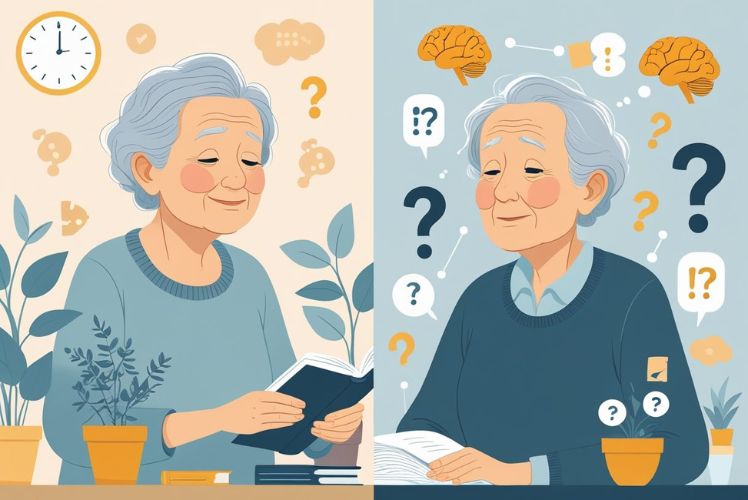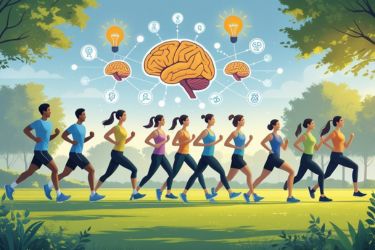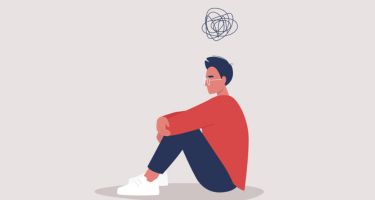It’s normal for us to misplace our keys or forget a name once in a while, especially as we get older. However, many people worry these moments could signal something more serious. Forgetfulness that is mild and occasional is generally a normal part of ageing, but frequent memory lapses that disrupt daily life could be a sign of cognitive decline.

We all want to know when we should start to worry about memory loss. Spotting the difference between normal forgetfulness and warning signs of conditions like dementia is key to getting the right support and care.
Key Takeaways
- Occasional forgetfulness can be a normal part of ageing.
- Persistent or worsening memory loss may point to cognitive decline.
- Knowing the warning signs helps us decide when to seek medical advice.
Understanding Forgetfulness and Normal Ageing

As we get older, it is common to notice changes in memory. Some forgetfulness is expected and usually does not signal a serious problem.
What Is Age-Related Forgetfulness?
Age-related forgetfulness refers to mild memory slips that are a normal part of getting older. These memory lapses can include forgetting where we put our keys or blanking on a name but remembering it later.
Unlike problems caused by diseases, these memory changes do not stop us from living independently. We may repeat questions or need reminders more often, but we can usually complete our daily tasks. Age-related forgetfulness is not a sign of dementia or significant cognitive decline.
Common examples include missing an appointment but remembering it later, or taking longer to learn new information.
How Memory Changes with Age
As we age, the brain processes information more slowly. It can take longer to recall words or names, and we may find it harder to multitask. This slower recall is a key sign of normal ageing, not a dangerous decline.
We may also need more time to learn new things, but we can still do so with practice. Forgetting details of past events, while still remembering the main story, can also happen more with age.
It's important to know that these changes affect most older adults, but do not usually prevent us from managing daily life.
Key points to look for:
- Memory slips do not disrupt independence
- Slower recall, but information is eventually remembered
- No major changes in judgement or personality
Common Causes of Everyday Memory Lapses
There are many reasons we experience memory lapses as we get older. Apart from natural brain ageing, stress, tiredness, and distractions can all affect how well we remember things.
Other common factors include:
- Medications with side effects on memory
- Lack of sleep
- Depression or anxiety
- Poor nutrition or dehydration
Medical conditions, like thyroid problems or vitamin deficiencies, can also play a role. These causes usually lead to mild forgetfulness and may be improved by addressing the underlying issue.
If memory lapses become frequent or begin to interfere with daily life, it is important to speak with a healthcare professional.
Distinguishing Forgetfulness from Cognitive Decline

As we age, many of us notice changes in memory and thinking. It's important to know whether these changes are part of normal ageing or signs of something more serious.
Signs of Cognitive Impairment
Cognitive impairment means trouble with memory, attention, or other mental skills that go beyond normal forgetfulness. We might notice missed appointments, lost items, or repeating the same questions.
Warning signs include:
- Problems finding words often
- Getting lost in familiar places
- Struggling to make decisions or solve simple problems
Mild cognitive impairment (MCI) happens when changes are more serious than normal ageing but do not yet disrupt day-to-day life. Dementia goes further, showing clear difficulties with thinking, memory, and the ability to function.
If these issues are consistent or noticeably worsening, it may be a sign to seek medical advice.
Differences Between Mild Forgetfulness and Dementia
Mild forgetfulness is common as we age. We might forget someone’s name or misplace keys but remember them later. With dementia, memory loss is frequent and affects work, social activities, or family life.
Comparison Table:
| Mild Forgetfulness | Dementia |
|---|---|
| Occasional memory lapses | Frequent, serious memory loss |
| Still able to function independently | Needs help with daily tasks |
| Can recall forgotten info later | Can’t retrieve forgotten info |
| Aware of memory problems | Unaware of memory decline |
We should note that those with mild forgetfulness often recognise their memory issues. In dementia, people might not realise how much their memory or thinking has changed.
Impact on Daily Routine and Independence
Normal forgetfulness does not usually stop us from living on our own or completing everyday tasks. We may need reminders, but we handle routine activities like shopping and cooking.
Cognitive decline or dementia causes more serious problems:
- Trouble following steps in familiar tasks, like paying bills
- Difficulty managing appointments or medications
- Needing constant supervision or extra support
Loss of independence is a key signal. If memory issues start to affect safety, hygiene, or the ability to manage finances, we are likely dealing with more than simple forgetfulness. Noticing these changes early can help us get the right support.
Warning Signs: When to Worry About Memory Loss

Recognising the difference between normal forgetfulness and early signs of cognitive decline is crucial. Knowing what to look for can help us get the right support and medical evaluation sooner if needed.
Persistent or Worsening Memory Problems
If we notice that forgetfulness is becoming frequent or is getting worse over time, this could signal something more serious than normal ageing. Occasional lapses, such as misplacing keys or forgetting an appointment, are common. However, regular difficulty remembering recent events, names, or important dates should make us pause.
People experiencing persistent issues may also struggle to follow conversations or lose track of what they were saying. Difficulty remembering how to do familiar tasks, like using a phone or managing finances, is another warning sign. These changes can disrupt our daily routines and reduce our independence.
Key signs to monitor:
- Forgetting recently learned information
- Repeating questions or stories often
- Asking for the same information again and again
- Difficulty following instructions or directions
Tracking these changes over weeks or months is important. If memory problems seem stable or minor, they may be part of the normal ageing process. If they worsen, it is time to pay closer attention.
Red Flags for Dementia and Alzheimer’s Disease
Some symptoms are particularly linked to dementia or Alzheimer’s disease rather than mild forgetfulness. People living with these conditions may become confused about time or place, struggle with words in speaking or writing, and get lost in familiar settings.
Changes in personality or behaviour, such as sudden mood swings, withdrawal from social activities, or losing interest in hobbies, can also indicate cognitive decline. Poor judgement or errors in handling money are common. We may notice friends or family expressing concern about our memory, even before we realise there is a problem.
Main red flags:
| Symptom | Dementia/Alzheimer’s Link |
|---|---|
| Getting lost in familiar areas | Yes |
| Trouble recognising familiar faces/places | Yes |
| Difficulty planning or problem-solving | Yes |
| Loss of ability to complete daily tasks | Yes |
| Changes in judgement and safety awareness | Yes |
Spotting several of these symptoms, especially if they are getting worse, is a strong reason to seek help.
When to Seek Medical Advice
If we or someone close to us shows several warning signs, it is important to consult a healthcare professional. Early intervention makes a difference, as some causes of memory loss are treatable or manageable. A GP can offer an initial assessment and refer us to a neurologist or memory clinic if needed.
We should seek medical advice if memory loss is rapid, severe, or accompanied by other symptoms like confusion, trouble speaking, or difficulty moving. Getting lost, noticeable changes in behaviour, or struggling with daily tasks also warrant attention.
Prompt evaluation means we can identify the cause, get the right support, and make plans for care if necessary. Early diagnosis may slow the progression of Alzheimer’s disease or other forms of dementia. It also gives us access to treatments, resources, and support networks for us and our families.
Other Causes of Memory Issues and Cognitive Changes

Memory problems and cognitive changes are not always signs of dementia or a serious brain disorder. Our mood, medical history, and the medicines we take can all play a role.
Role of Depression, Anxiety, and Stress
Depression, anxiety, and stress are common causes of forgetfulness and trouble thinking clearly. When we are stressed, our brains can find it hard to focus and store new information. Sadness or worry can make us feel distracted and can even cause us to forget important things.
We may also notice changes such as trouble making decisions, confusion, or a lack of motivation. These are signs that mental health is closely linked to how our brains work. Older adults are more likely to have depression, but it is often missed or mistaken for dementia.
Tip: If memory problems get worse during stressful or anxious times, or if they improve when we feel better, mood could be the main cause.
Medical Conditions and Medication Side Effects
Many health conditions can affect our memory. Problems with the thyroid, vitamin deficiencies (especially B12), infections, and even menopause may cause forgetfulness or mental slowing. Serious conditions like heart disease, kidney problems, or sleep disorders can limit blood flow or oxygen to the brain, leading to memory issues.
Medication side effects are also important. Some medicines, such as those for sleep, allergies, depression, or pain, list confusion or memory loss as possible side effects, especially in older adults. It is useful to review all our current medications with a doctor or pharmacist to spot any culprits.
The following table lists some common causes:
| Cause | Example Conditions/Medicines |
|---|---|
| Vitamin deficiency | Low B12, D deficiency |
| Hormonal changes | Menopause, thyroid problems |
| Infections | Chest infections, urinary tract |
| Medicines | Sedatives, antihistamines, painkillers |
Reversible Causes and Their Management
Some memory problems are reversible if we find and treat the cause. Vitamin deficiencies can often be fixed with proper supplements. Infections usually improve with the right antibiotics. When medicines are to blame, our doctor can suggest alternatives or adjust doses to reduce side effects.
Managing stress, depression, and anxiety through counselling, medication, or exercise can also lead to clear improvements in thinking and memory. Making healthy lifestyle changes, such as eating well, sleeping enough, and staying socially active, supports cognitive health.
If memory problems start suddenly, get worse quickly, or come with other symptoms like confusion or fever, we should see a doctor right away. Early action can make a big difference.
Types of Cognitive Decline and Dementia
Cognitive decline can look different depending on its cause. There are various types of dementia, and each one affects memory, reasoning, and behaviour in unique ways.
Overview of Dementia Disorders
Dementia is an umbrella term we use for several disorders that impact how the brain works. Dementia is not a normal part of ageing, but it becomes more common as people get older. It affects memory, language, problem-solving skills, and sometimes changes personality or behaviour.
Dementia disorders progress over time, often starting with mild memory issues before becoming more severe. Not every person with memory problems has dementia. Some symptoms may also come from treatable conditions like stress or infection. Common forms of dementia include Alzheimer’s disease, Lewy body dementia, frontotemporal dementia, and vascular dementia.
Alzheimer’s Disease and Mild Cognitive Impairment
Alzheimer’s disease is the most common cause of dementia in older adults. It mainly affects memory at first. We often notice people repeating questions, losing items, or forgetting recent conversations. As it gets worse, language, thinking, and movement can also be impacted.
Mild Cognitive Impairment (MCI) is a stage between normal ageing and dementia. People with MCI have more memory or thinking issues than expected for their age, but these do not yet interfere with daily life. Not everyone with MCI develops dementia but having MCI does raise the risk. Early recognition allows us to plan and manage symptoms.
Understanding Lewy Body, Frontotemporal, and Vascular Dementia
Lewy body dementia involves abnormal clumps of protein in the brain. We often see alertness that changes from day to day, visual hallucinations, and symptoms similar to Parkinson’s disease like tremors or stiffness. Sleep problems are also common.
Frontotemporal dementia affects the front parts of the brain. It can show up as changes in behaviour, judgement, or personality before memory problems appear. Speech and the ability to understand language may also decline.
Vascular dementia is linked to problems with blood flow to the brain, often after a stroke. Symptoms can include sudden or stepwise changes in memory, thinking, and attention. Managing heart health, diabetes, and high blood pressure is important to lower the risk.
Promoting Brain Health and Next Steps
We can take clear steps to support our cognitive health as we age. Small changes in our daily routines, staying informed about early intervention, and knowing how to seek professional help can make a significant difference.
Lifestyle Factors Supporting Cognitive Health
Our everyday habits strongly influence our brain health. Regular physical activity, such as brisk walking or swimming, increases blood flow to the brain and supports memory and thinking. A diet rich in fruits, vegetables, whole grains, lean proteins, and healthy fats like omega-3s from fish is also helpful.
Getting enough sleep each night is essential, as our brains need time to recharge and process memories. Staying mentally active by reading, doing puzzles, or learning new skills exercises our minds and may reduce the risk of cognitive decline.
Social engagement plays a role too. Staying connected with family, friends, or joining community activities helps protect against isolation, which is linked to quicker memory loss. Avoiding smoking and limiting alcohol intake further reduces risk factors for cognitive decline.
Key lifestyle strategies for brain health:
| Activity | How it helps |
|---|---|
| Physical exercise | Boosts blood flow, sharpens mind |
| Healthy diet | Supplies nutrients for brain |
| Good sleep habits | Supports memory and focus |
| Mental stimulation | Strengthens brain connections |
| Social engagement | Reduces isolation risk |
Early Intervention and Clinical Trials
Spotting memory or thinking problems early is essential. Recognising changes in our daily abilities or frequent forgetfulness helps us act sooner. Early intervention may slow cognitive decline and provides more options for future planning.
Health professionals can assess memory, guide on next steps, and suggest treatment or therapies that fit our needs. Clinical trials offer a chance to try new treatments under careful supervision. These trials help discover better ways to prevent or manage dementia and other conditions.
We should talk to our GPs if we have concerns or notice ongoing changes. Participating in research can benefit individuals and help advance knowledge for everyone.
Guidance for Older Adults and Family Members
Understanding the line between normal forgetfulness and something more serious can be hard. If we or someone close has trouble with everyday tasks — like paying bills, using the phone, or preparing food — it may be time to seek help. Signs like asking the same question many times or becoming confused in familiar places should not be ignored.
Family members can support by gently starting conversations about memory concerns. Keeping track of changes and bringing notes to doctor appointments can help. We must encourage regular check-ups and create safe, supportive environments at home.
Professional resources, such as memory clinics or local support groups, provide advice, care, and connection. Seeking guidance early makes it easier to plan and maintain quality of life over time.
Frequently Asked Questions
We often wonder what sets apart normal forgetfulness from something more serious, and what we can do to protect our memory as we grow older. It is also important to know the reasons behind memory changes and when certain symptoms might suggest a higher risk for dementia.
What are the signs that differentiate normal forgetfulness from cognitive decline?
Normal forgetfulness often means occasionally forgetting names, misplacing items, or missing appointments but remembering them later. We are usually aware of these lapses and can often recall the information with a prompt.
Cognitive decline involves more frequent memory problems that disrupt daily life. This could look like trouble following conversations, getting lost in familiar places, or repeating the same questions. The changes are steady and noticeable by others, not just ourselves.
Which lifestyle choices can help prevent memory loss as one ages?
Staying physically active, eating a balanced diet, and keeping our minds engaged are all linked to stronger memory in later years. Socialising, managing stress, and getting enough sleep can also make a difference.
We benefit from activities like reading, puzzles, walking, or joining a club. Preventing or managing conditions such as high blood pressure and diabetes also helps maintain brain health.
What are the common causes of memory loss?
Memory loss can come from many factors. Ageing is normal, but stress, lack of sleep, depression, and anxiety also play a part.
Medical factors like vitamin deficiencies, thyroid disorders, head injuries, and some medications may also cause forgetfulness. Sometimes, infections or illnesses affecting the brain can be involved.
How does age-related memory loss compare to symptoms of dementia?
With age-related memory loss, we might forget details but usually remember them later. We can still care for ourselves, manage our finances, and interact socially.
Dementia symptoms are more severe. People have trouble remembering recent events, making decisions, or recognising familiar people and places. Changes eventually interfere with daily life and independence.
Can certain medications contribute to memory loss?
Yes, certain medicines can affect memory. Some examples include sleeping pills, antihistamines, painkillers, and medication for anxiety or depression.
If we suspect a medicine is causing memory problems, it's important to speak with a doctor before stopping or changing any prescriptions.
What are the early warning signs indicating a potential progression to dementia?
Early signs of dementia include repeating questions, struggling to follow conversations, forgetting important dates, and getting lost even in familiar settings.
Other signs include poor judgement, withdrawing from hobbies, and difficulty planning or solving problems. If these symptoms appear, it is best to seek medical advice promptly.





















